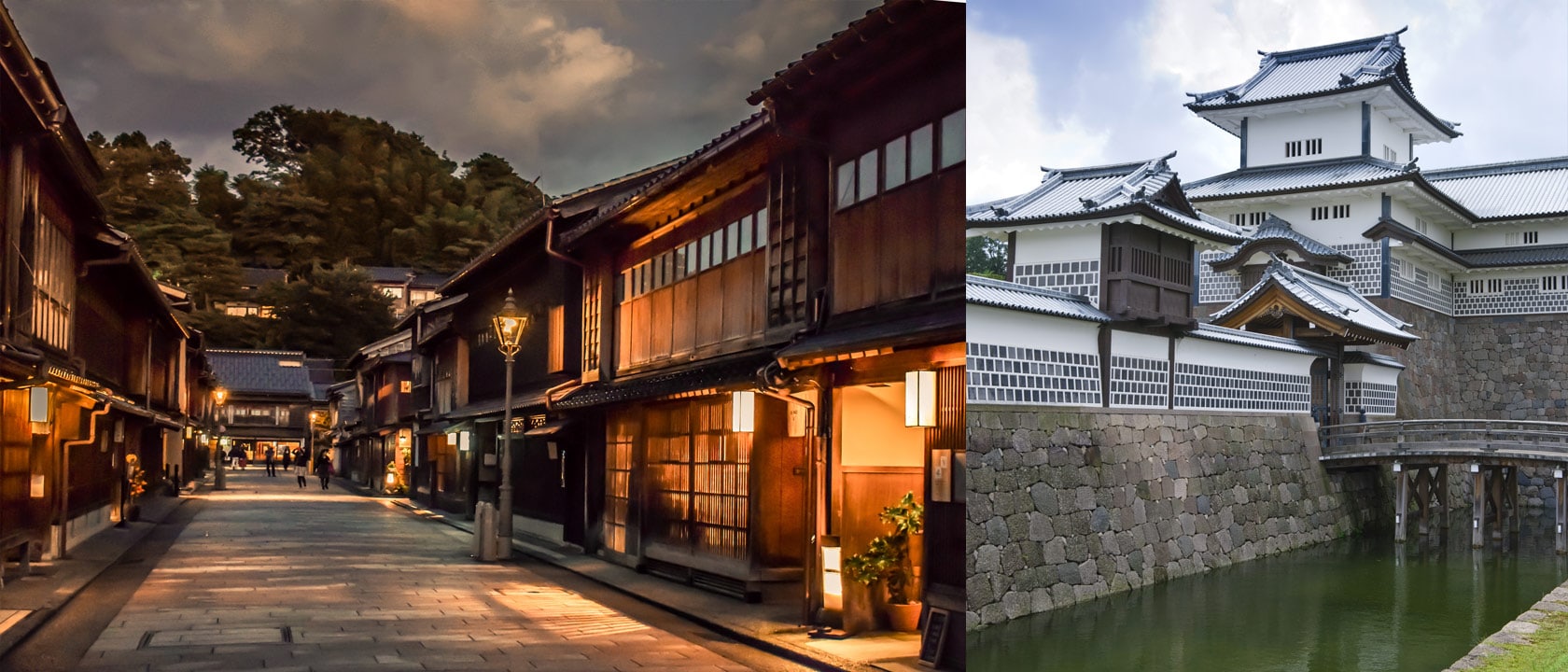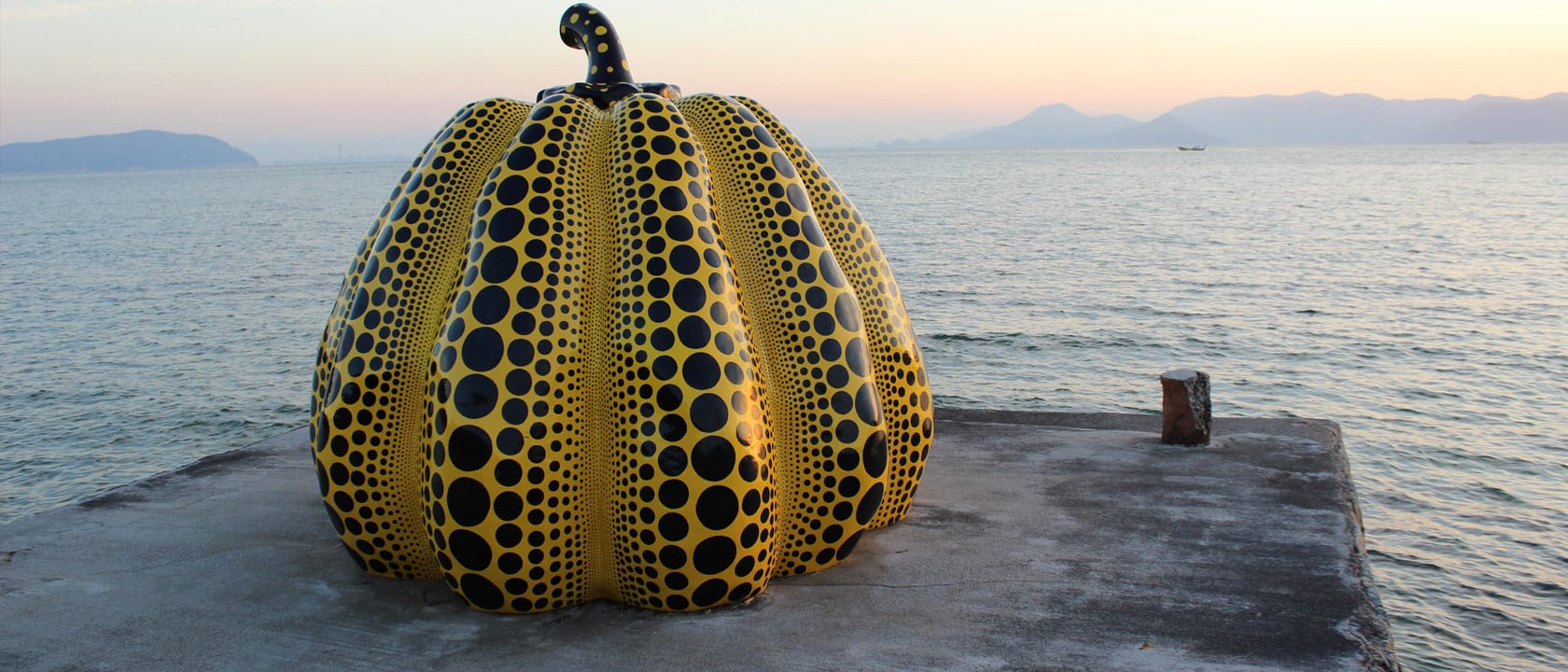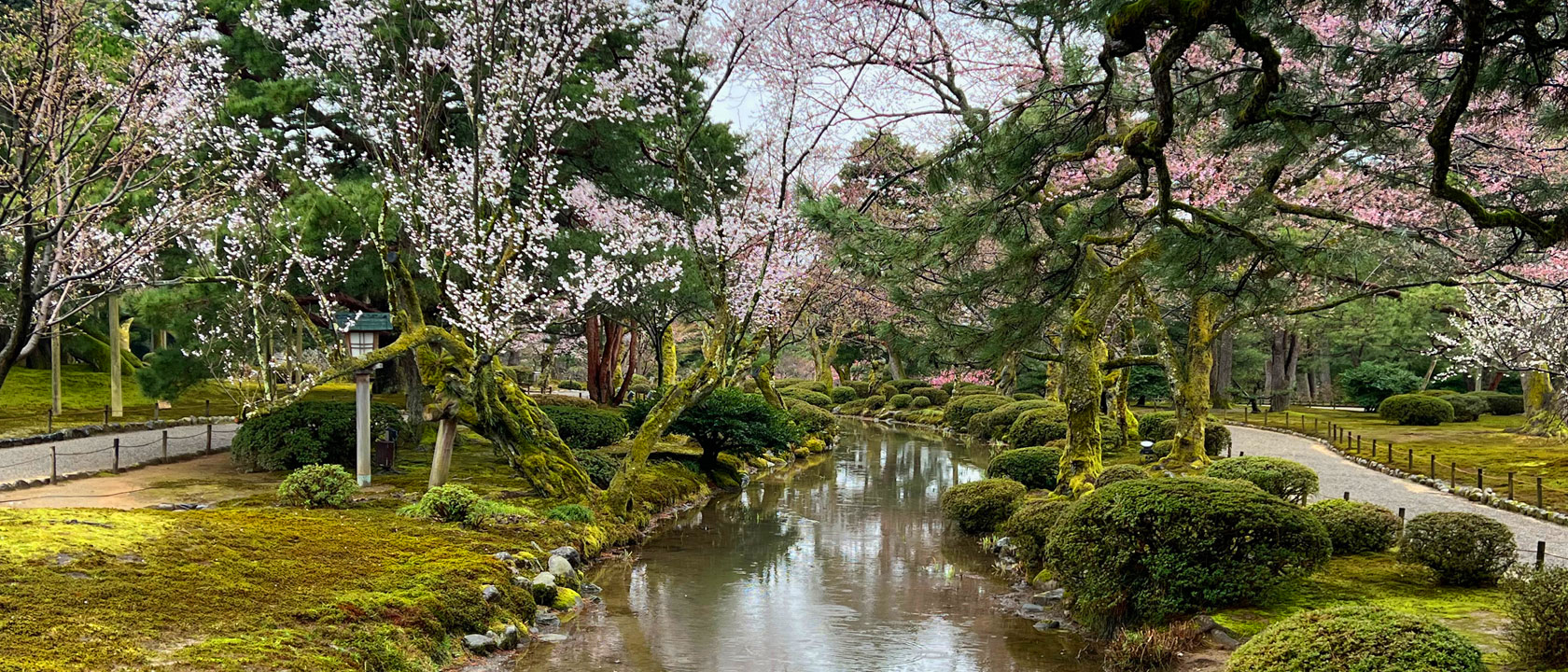
Access to your government’s embassy while travelling
Australia www.dfat.gov.au
New Zealand www.mfat.govt.nz
Canada www.travel.gc.ca
United Kingdom www.gov.uk
America www.usembassy.gov
Time Zones
Tokyo, Japan is GMT +9 hours.
To obtain the current local time and date in the cities and countries you are travelling to, please visit: www.timeanddate.com
Electricity and Plugs
Japan uses 110 volts. Adaptors are the Type A, with 2 flat pins – www.korjo.com/adaptor-guide
Currency
To obtain the most up-to-date exchange rate you may wish to visit: www.xe.com/currencyconverter
Japan is still a predominantly cash-based economy and credit cards are not as widely used. They are mostly accepted in large department stores and hotels. Convenience stores and larger restaurants will generally accept cards, however smaller restaurants and shops are unlikely to.
The official currency of Japan is the Yen (JPY). Bank notes come in denominations of ¥1000, ¥2000, ¥5000 and ¥10000. Coins come in denominations of ¥1, ¥5, ¥10, ¥50, ¥100 and ¥500.
Money can be exchanged at international airports, banks and post offices that display the ‘Authorised Foreign Exchange’ sign, large hotels, major department stores and major train stations. It will be difficult to find somewhere to exchange money in rural areas.
ATM’s in Japan do not accept all foreign credit cards, however ATM’s at international airports, post offices and 7-Elevens do. Make sure you look for a window displaying ‘International ATM Service’ and the symbol of a Green clover.
Visa
Citizens of several countries are exempt from holding a visa when they travel to Japan for tourism purposes. The policy allows them a visa-free stay of up to 90 days. These nations include the UK, Canada, Australia, New Zealand and Singapore. Ensure your passport is valid for a minimum of six months after your departure date and has at least 2 clear pages in your passport. You must also hold a confirmed return or onward ticket.
Telephone & Communication
Mobile Telephones
Most mobile telephones work in Japan and coverage is excellent in most areas. It can be patchy in rural areas. Check with your local provider regarding ‘Global Roaming’ and coverage in the places you are visiting. If you are planning to purchase a local sim card, please check with your local provider prior to departure to make sure your phone is unlocked and will accept another sim card. It is possible to use mobile phone applications such as Skype and WhatsApp through complimentary Wi-Fi connections to contact friends and family back home free of charge.
WhatsApp Messenger is an economical way to stay in touch with friends and family. WhatsApp is free and offers simple, secure, reliable messaging and calling service.
ASA tour leaders use WhatsApp to communicate with tour participants while travelling, so the app should be downloaded to your mobile devise prior to joining the program.
Internet
Wi-fi is common in hotels, hostels, restaurants and cafes across the tourist areas of Japan.
Check with your local provider to see what they offer for international travel, some have a simple daily cost. Alternatively you may wish to purchase a pre paid sim card prior to your departure from your home country. For Australians you may wish to look at www.prepaidsims.com.au.
Personal Safety
Japan is considered one of the safest countries to travel to, but bare in mind that opportunistic petty crime can still be an issue, anywhere you travel.
- Keep expensive jewellery at home and have an awareness of where your bags and possessions are at all times, especially in crowded areas such as train stations. Do not leave any items unattended.
- Take extra care and avoid keeping your wallet or phone in your hip pocket.
- We strongly recommend the use of a money belt to keep your cash, cards and travel documents safe. This should be kept under your clothes at all times. This is a precaution that should be taken anywhere due to the difficulties that can be experienced when trying to replace stolen items.
- You must carry your passport for identification purposes on you at all times.
- Take photocopies or photos of all important documents (passport, credit cards, E-tickets, insurance).
- It is generally helpful to take a business card from the hotel you are staying at. This can assist hugely if you get lost or if there is a language barrier. If you have a key card for your hotel, make sure you keep these two cards separate.
Australians Studying Abroad takes the health and safety of its travellers seriously and every measure is taken to ensure that trips are safe, fun and enjoyable. We recommend that all travellers check with their government or national travel advisory organisation for the latest information before departure:
Australia Smart Traveller
New Zealand Safe Travel
Canada Canada Travel Information
United Kingdon UK Foreign Travel Advice
USA US Department of State
The World Health Organisation also provides useful health information.
Health
It is advisable to consult with your doctor or local travel clinic in the weeks leading up to your departure, allowing enough time to obtain any relevant vaccinations or travel medication that may be required.
Tap water in Japan is safe to drink. Alternatively, bottled water is readily available everywhere. Please ensure that the seal is unbroken.
Travelling with Medication
Japan has strict anti-stimulant drug laws. Not all medications available in your home country, over the counter or by prescription, are available in other countries. Some may be considered illegal or a controlled substance, even if prescribed by a doctor. These can include Vicks inhalers, medicines for allergies and sinus problems and even some mild painkillers such as those containing codeine.
If unsure, travellers should check the regulations on importing or transporting medicines to their chosen destination by contacting the relevant embassy or high commission for clarification.
All medication should be carried in their original packaging and in your hand luggage. If you are taking medication whilst travelling, please make sure you have enough for the duration of your trip.
Carry a letter from your doctor stating:
- what the medication is and what it is for
- your required dosage
- that it is for personal use
For more information, contact the Japanese Embassy in your country.
Australia www.dfat.gov.au
New Zealand www.mfat.govt.nz
Canada www.travel.gc.ca
United Kingdom www.gov.uk
USA US Department of State
What to Pack
Clothing (general)
The time of the year you visit this destination will dictate the type of clothing that is appropriate to bring. It is always advisable to take a raincoat or a waterproof windbreaker. For daytime activities, we suggest a wardrobe that is versatile, casual and comfortable. It is recommended that “layered” clothing might offer the best comfort in a variety of conditions. Always expect the weather to be changeable.
Beyond the normal wardrobe, we suggest the following:
- Day pack (with a lock) or a cross-body handbag. Site visits often involve walking on dirt streets and uneven ground, up numerous steps and may be of a reasonable duration. You will want to have your hands free to hold rails or steady yourself as applicable. A day pack will allow you to easily carry your ancillary items: camera, torch, waterproof, sunhat, sunscreen, bottled water, sunglasses etc.
- A hiking pole (fold-up) should be considered as many sites have steps and uneven ground, often without handrails.
- Comfortable walking shoes are very important (hiking boots are not required); sandals or open shoes are only suitable for the evening.
- Sunglasses, sunscreen and a hat.
- Travel torch.
- Folding umbrella and/or waterproof, windproof jacket.
- In the higher elevations, a pullover is recommended for the cooler mornings and evenings.
- Toilet paper, wet wipes and hand sanitiser. (See note below – Toilets)
- Camera: Please take all necessary equipment/spares as it may be difficult to purchase additional supplies while on tour.
- Dress appropriately when visiting temples and shrines.
- Wear shoes that are easy to slip on and off.
- Sleeveless tops are not appropriate. Shorts and Skirts must go below the knees, long light weight pants are the most appropriate.
- This is only appropriate at pools and beaches, once leaving these areas you need to cover up.
- Extra prescription eyeglasses (if required).
Toilets: Most public toilets in Japan are western-style and common throughout the cities and are kept very clean. Some convenience stores even have them. Be sure to carry a personal supply of tissue or wipes with you as not all public facilities supply toilet paper.
Etiquette
- No attempt should be made to photograph anything remotely connected with the armed forces or in the vicinity of defence installations or Government buildings.
- Many people do not like being photographed, while others may try to obtain money from you. Always ask permission before photographing someone. Cameras are generally not permitted in Temples. Due to safety concerns, selfie sticks are banned from many venues and completely banned on all train platforms across the country.
- The customary greeting when meeting someone in Japan is to bow as it expresses respect and gratitude.
- Remove shoes when entering homes, temples, ryokans and even some restaurants. Slippers may be provided, but if not, you may enter with your socks on.
- If you see a tray on the counter when paying for items, place your money here rather than handing it to the cashier.
- Although there are a few exceptions, there is no tipping in Japanese culture. Compared to many countries in the world, there are very few times when service industry employees expect a tip. In most cases, if you tried to give one, they would politely refuse it.
- Haggling or bargaining is not customary in Japan. In general, expect to pay what is marked.
- Foreign tourists visiting Japan can enjoy tax-free shopping under the tax exemption system, provided their stay in Japan is less than six months and they do not work in Japan. Please ask instore when making purchases.
- The predominant religions in Japan are Shinto and Buddhism. As in many other countries, there are many significant temples open to foreign visitors. These temples are places of worship and devotion in addition to being an attraction. As such please be mindful and respectful at all times.
- Try to respect the locals to the same degree you would want to be respected at home.
- Visitors should dress neatly and conservatively in all religious shrines. It is acceptable to wear shoes when walking around the compound, but not inside.
Climate
The climate in Japan is mostly mild with local variations in the weather, according to region. There are four distinct seasons in Japan – Winter: December to February, Spring: March to May, Summer: June to August and Autum: September to November. We suggest checking the weather forecast for the most up-to-date information, prior to your departure.
www.worldweatheronline.com or www.weather-finder.com
Average minimum/maximum Temperatures (˚C)
| City | Jan | Feb | Mar | Apr | May | Jun | Jul | Aug | Sep | Oct | Nov | Dec |
| Tokyo | 3/10 | 3/11 | 6/14 | 11/19 | 16/23 | 20/26 | 24/30 | 25/32 | 22/28 | 16/22 | 11/17 | 6/12 |
| Nagasaki | 4/10 | 5/11 | 8/15 | 12/20 | 17/24 | 21/27 | 25/30 | 26/32 | 22/29 | 17/24 | 12/18 | 6/12 |
The information above has been compiled with care and provided in good faith however it is subject to change.

 Art, Architecture and History of Japan 2025
Art, Architecture and History of Japan 2025  Japan: Architecture and Design 2026
Japan: Architecture and Design 2026  Cherry Blossom and the Art of the Japanese Garden 2026
Cherry Blossom and the Art of the Japanese Garden 2026  Southern Japan: Ancient Forests, Mountain Shrines & the Spirit of the Samurai 2026
Southern Japan: Ancient Forests, Mountain Shrines & the Spirit of the Samurai 2026  Autumn & the Art of the Japanese Garden 2026
Autumn & the Art of the Japanese Garden 2026